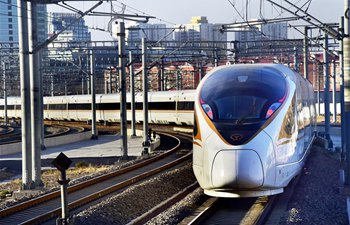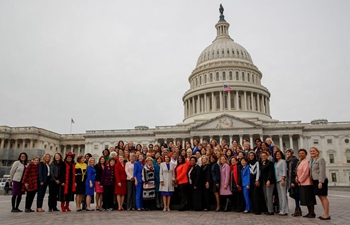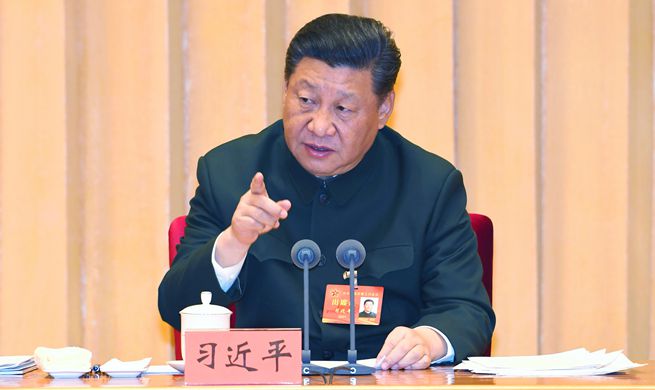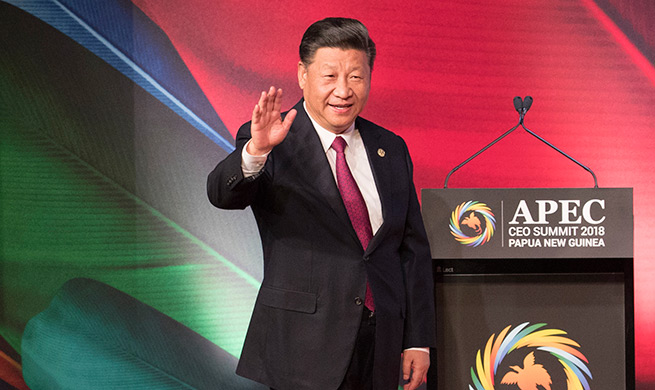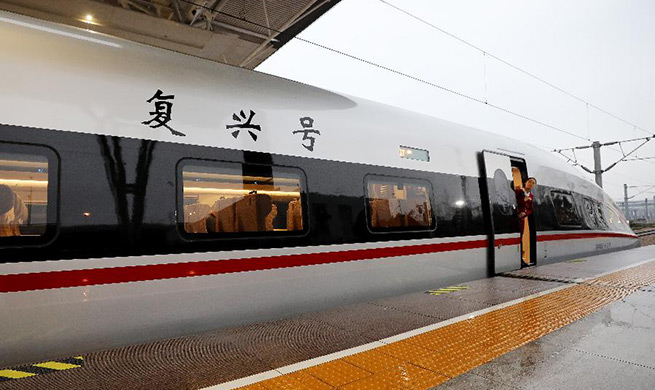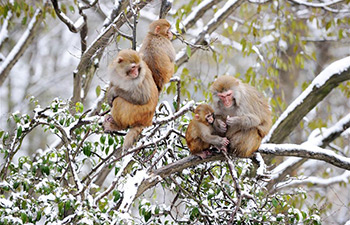WASHINGTON, Jan. 5 (Xinhua) -- As the United States and China continue their trade talks, Gary Shapiro, president and CEO of the U.S. Consumer Technology Association (CTA), said he would like to see a more "normalized" trade relationship with China, arguing that tariffs are not the right mechanism to solve the problems.
Shapiro made the remarks in an exclusive interview with Xinhua ahead of the 2019 Consumer Electronics Show (CES), which will be held in Las Vegas from Tuesday to Friday. The annual tech show was created by the association in 1967.
"Tariffs on Chinese products are costing the U.S. tech industry and American consumers about a billion dollars a month," Shapiro said, noting that this is based on a comparison of data between October 2018 and October 2017.
Shapiro said there is a sense among American companies that the U.S.-China trade relationship does need to change, but he thinks "there are other ways to deal with it," such as through bilateral and multilateral trade agreements.
Shapiro has repeatedly spoken out against additional tariffs on Chinese imports. "We look forward to continued progress between the U.S. and China -- eliminating the current tariffs and not adding new trade taxes to even more products -- so we can keep our economy strong and our job creation growing," he said in a statement in early December.
Despite the strain created by the trade discussions, the relationship between the CTA and the technology industry in China is "strong and important," Shapiro told Xinhua.
When asked about how he views the U.S. Commerce Department's plan to control the exports of emerging technologies, Shapiro said he is "concerned" about the impact on U.S. innovation.
The department said in November that it plans to impose export controls on 14 categories of emerging and foundational technologies that are "essential" to national security, including artificial intelligence (AI), advanced computing technology and biotechnology.
"That will limit export opportunities or restrict the flow of information and the advancement of AI, especially in the U.S.," Shapiro said. "That is not something we favor."
Public comments will be accepted by the department until Thursday. Shapiro said his association is planning to submit their comments before the deadline.
For this year's CES tech show, almost 14 percent of the 2.9 million square feet (about 270,000 square meters) of exhibit space will be occupied by more than 1,200 China-related companies, Shapiro said, adding that the size and space are "roughly even" compared with last year.
Companies such as Alibaba, Baidu and JD.com come to the CES to form partnerships and establish relationships, while companies including Haier and Hisense see the CES as a way to meet their sellers and buyers. "Every company is different," Shapiro said. "They are looking to build brand awareness here."
Some major themes of the CES tech show this year include 5G, AI, voice interface, blockchain, augmented and virtual reality, digital health, smart cities and self-driving.
This year's show is set to attract more than 4,400 exhibiting companies and host more than 1,200 startups. "This is the largest show ever," Shapiro said.

